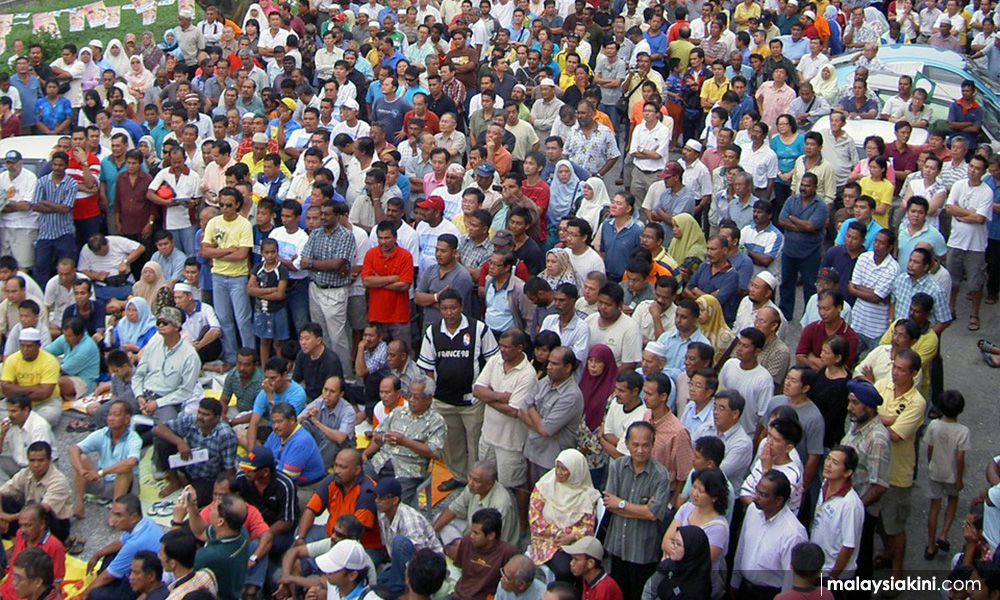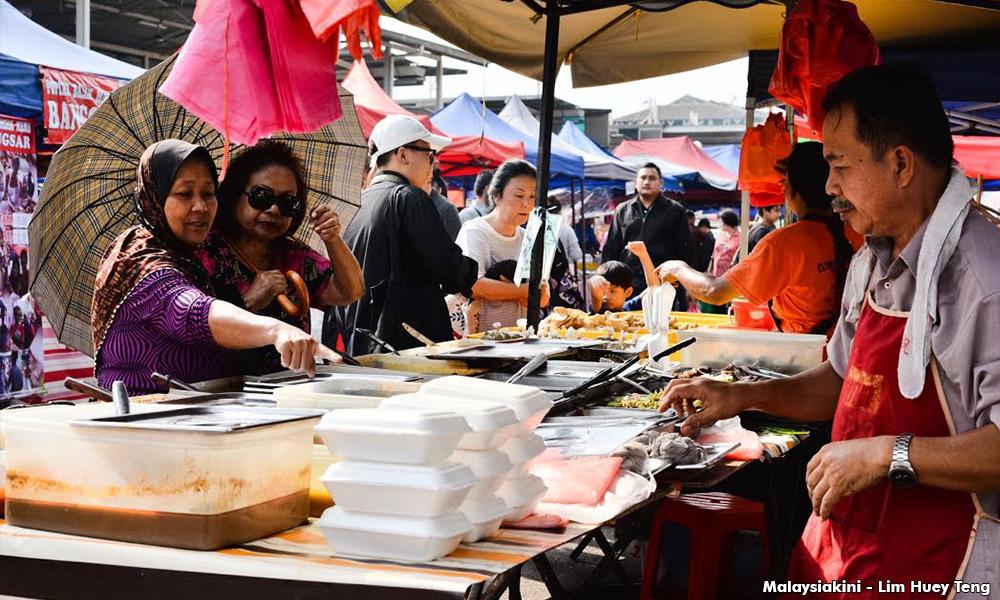
The problem with some Malays is that they are busy navel-gazing about their superiority, race and religion, and cannot stop complaining about the non-Malays.
Last week, a reader said that I did not dare write about "the one race that controls the Malaysian economy worth US$280 billion GNP per year!"
As he probably missed my earlier articles about "that" race, I hope he enjoys this one.
If the navel gazers were to stop the self-pity and gloating, our economy would be the envy of others in the region. No one need be left behind, but they should drop the Malay agenda, and move forward with a Malaysian agenda.
Today, Pakatan Harapan promised us "hope", but many are furious with the slow pace of reform. We want change, but some of us refuse to accept that change must also come from within.
Some people say it is hard to change the lives of other people. I disagree.
One act can change the life of one person and also the lives of his unborn children, and more importantly, change the lives of those he will meet.
At school, I befriended a Chinese girl whose dream was to help others. While most of us had time to enjoy life as teenagers, hers was spent helping her parents make ends meet. She was often tired, from juggling many roles - worker, student and babysitter to her younger siblings.
She fell short of the necessary grades for a scholarship to further her studies in college. In my time, many non-Malays were bitter that some Malays with lower grades received funding to study at overseas universities. Even Malays from well-to-do families qualified.
Undaunted, my friend worked in a shop, saved enough money to pay her own way at a private college, to get her degree.

Today, she is a successful businesswoman and donates to many charities, one of which helps underprivileged and deprived women.
To effect change in other people's lives, get an education.
Not everyone has the aptitude to study, and the Lower Certificate of Education (LCE) decided the fate of many students.
My mother, a former teacher, observed how Chinese parents dealt with their children's failure. They would force their children to get a job - an apprentice in a particular trade, such as the construction industry, or become an electrician, plumber or mechanic.
Today, her former Chinese students who pay homage to her during Hari Raya are in trades providing services that are in great demand by many households.
If you can't study, get a job to be able to effect change.
At my Convent school, some of us used to revise lessons together. Girls of all races. One would be good at mathematics, another at science, needlework or geography. We swapped notes. We learnt from one another. Monthly tests boosted our competitiveness.
Today, a niece tells me that in her private university, the study group in her course, who are predominantly Chinese, were reluctant to include her.
I found out that all she wanted to do was to copy their work and notes. Her contribution was nil.
If you want to effect change, put in some effort. To effect change, surround yourself with like-minded people.
A few months ago, I was introduced to a young barber who had set up a shop in Old Town Ipoh. He had been studying at a university in Taiwan, but soon decided that the course was unsuitable. He broke the news to his parents and told them that his ambition was to cut men's hair.
He went to work in Penang to gain experience, then joined a hairdressing academy in Taiwan and worked in Singapore. With his savings, he opened a barbershop "because Ipoh needs an injection of young people. Ipoh is home, and I want to help revive it."
Contrast this with a young Malay man I know. He keeps changing courses and colleges because the teachers are bad, the location is remote, the course content is inadequate and a friend suggested another course with better employment prospects.
To effect change, one must take responsibility for one's actions.
Another Chinese friend, a successful accountant, had many setbacks in her life, but she refused to accept defeat. She rejected money from her parents because she knew they would pawn granny's necklace or some other heirloom. To reduce her expenses, she did not eat out, buy new clothes or go on holiday for a few years.

To effect change, one must understand that life does not owe you a living, but one must be in for the long haul. To effect change, it is also important to have faith in oneself.
During my travels, I have met many Chinese and Indian Malaysians, many of whom reluctantly relocated to live and work in their adopted countries. They were denied equal opportunities at home.
Many would like to return, but with young children, they must consider things like education and the effect of racism.
These overseas Malaysians endure separation from their families. They forego family occasions like weddings, birthdays, or funerals, and are unable to visit and care for ill family members.
When crises strike, these Malaysians rally round the affected person, and act as a surrogate family to provide comfort; like the lady who returned to her house to find her husband had died. Or the man whose mother had died, and he could not afford the airfare home for the funeral in Malaysia.
To be able to effect change, they had to remain strong in their darkest hours. To be able to effect change, they supported one another. Morally. Spiritually. Emotionally.
For the Malays who think that the Chinese and Indians are not patriotic, or less Malaysian, think again!
The non-Malays were forced to become resourceful because they were dragooned by the Malays.
The non-Malays changed adversity into opportunity. When the door was slammed in their faces, they found another opening. Those who had very little to start with behaved like ants - they toiled away, to prepare for days of need.
The non-Malay learns Malay at school, realises English is necessary and communicates with his older relatives in his mother-tongue.
Many Malays speak only Malay, to be seen as patriotic. They then complain that no one wants to employ them because they cannot speak English or a second language.
Only a fool would think that Islam says it is permissible to lie. Only a bigger fool would think it is preferable to be led by a corrupt Malay/Muslim thief, rather than be led by an upright and honest non-Malay.
In corruption cases, we target the kingpin and do not pursue the small fry. Similarly, I focus on the Malays, because the problem and solution of many of Malaysia's woes lie with them.


No comments:
Post a Comment
Note: Only a member of this blog may post a comment.